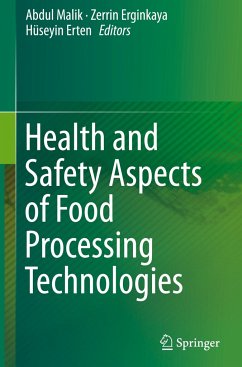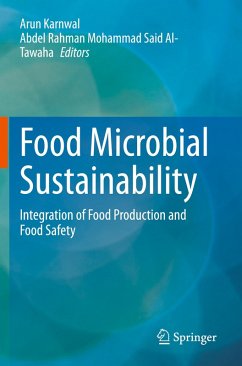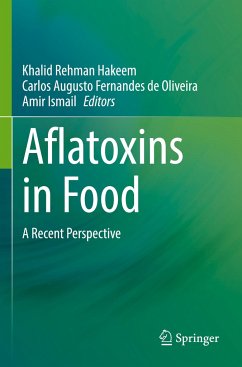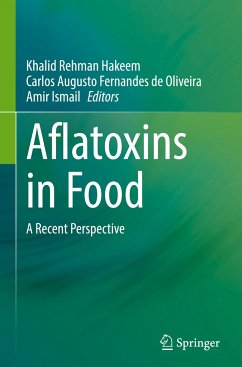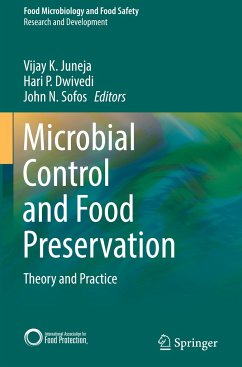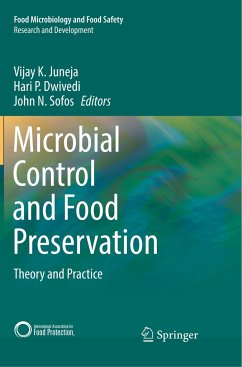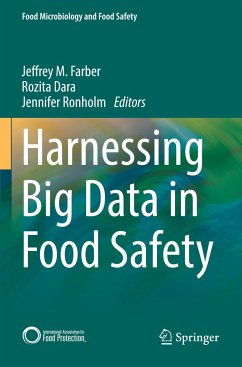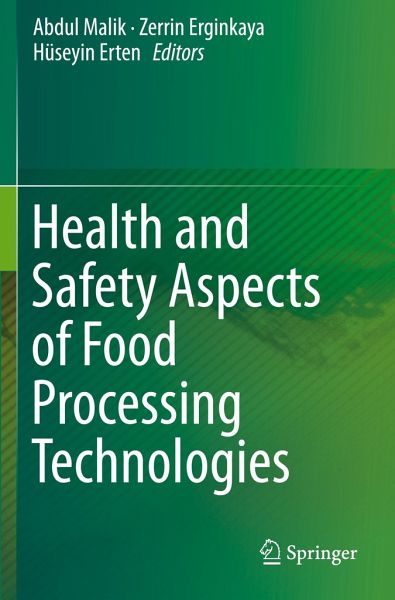
Health and Safety Aspects of Food Processing Technologies
Versandkostenfrei!
Versandfertig in 6-10 Tagen
151,99 €
inkl. MwSt.

PAYBACK Punkte
76 °P sammeln!
Food processing is expected to affect content, activity and bioavailability of nutrients; the health-promoting capacity of food products depends on their processing history. Traditional technologies, such as the use of antimicrobials and thermal processing, are efficient in increasing nutritional value to an extent, though they may not be effective at addressing food safety, particularly when it comes to maintaining the food's molecular structure. Modern food processing plants improve the quality of life for people with allergies, diabetics, and others who cannot consume some common food eleme...
Food processing is expected to affect content, activity and bioavailability of nutrients; the health-promoting capacity of food products depends on their processing history. Traditional technologies, such as the use of antimicrobials and thermal processing, are efficient in increasing nutritional value to an extent, though they may not be effective at addressing food safety, particularly when it comes to maintaining the food's molecular structure. Modern food processing plants improve the quality of life for people with allergies, diabetics, and others who cannot consume some common food elements. Food processing can also add extra nutrients, such as vitamins. Processed foods are often less susceptible to early spoilage than fresh foods and are better suited for long-distance transportation from the sourceto the consumer. However, food processing can also decrease the nutritional value of foods and introduce hazards not encountered with naturally occurring products. Processed foods often include food additives, such as flavourings and texture-enhancing agents, which may have little or no nutritive value, and may in fact be unhealthy.
This book deals with the subject of food processing in a unique way, providing an overview not only of current techniques in food processing and preservation (i.e., dairy, meat, cereal, vegetables, fruits and juice processing, etc.) but also the health and safety aspects: food technologies that improve nutritional quality of foods, functional foods, and nanotechnology in the food and agriculture industry. The text also looks into the future bydefining current bottlenecks and future research goals. This work will serve as a ready reference for the subject matter to students and researchers alike.
This book deals with the subject of food processing in a unique way, providing an overview not only of current techniques in food processing and preservation (i.e., dairy, meat, cereal, vegetables, fruits and juice processing, etc.) but also the health and safety aspects: food technologies that improve nutritional quality of foods, functional foods, and nanotechnology in the food and agriculture industry. The text also looks into the future bydefining current bottlenecks and future research goals. This work will serve as a ready reference for the subject matter to students and researchers alike.





